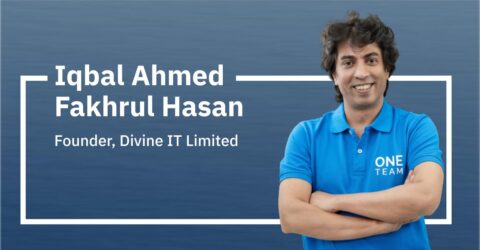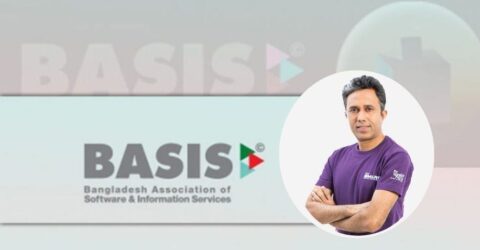Sheikh Abu Naser, an unsung hero of the Liberation War
The Bangladesh Today The Bangladesh Today
TBT NEWS

The most pride and vainglory of the thousand years of history of Bangalee’s in exchange for their struggle and immense sacrifice in our great liberation war, today’s independent sovereign Bangladesh stands with its head held high Sheikh Abu Naser is one of the brightest stars among them. Abu Naser was the younger brother of the father of the nation Bangabandhu Sheikh Mujibur Rahman. Martyr Sheikh Abu Naser inspired him by setting off a steadfast companion of the long thorny path of struggle for autonomy to independence and liberty commotion under the prudent leadership of the architect of Bangladesh Bangabandhu, the supreme personage for a thousand years in the revelation and upliftment of Bangalee nationality.
On March 26, 1971, Bangabandhu was arrested by the Pakistani army and taken to West Pakistan for declaring the independence of Bangladesh. He was imprisoned in Pakistan during the entire liberation war. His younger brother Sheikh Abu Naser was a first class merchant by profession. When Bangabandhu was detained in Pakistan, all the businesses of Sheikh Abu Naser were teared down by the Pakistan Army. In that moment NSF the official student body, had a colossal impression. NSF clashed numerous times with Biswas Sirajul Haque Panna, Lalu, Ismat Qadir Gama and other student leaders who founded Chattra League in Gopalganj according to Bangabandhu’s instructions. After Bangabandhu’s declaration of independence on March 7, Panna Biswas and other Chattra League leaders onset preparing for the liberation war covertly. At that time, Sheikh Abu Naser, who was staying in Dhaka, came to Tungipara and joined with them. On his return to the village, he tried to organize the youth of all the surrounding areas and determine the future course of action.
While Sheikh Jamal eluded from Dhanmondi-32 and took part in the liberation war, the invading forces came to Bangabandhu’s house in Tungipara on May 19 to look for him. At this time they burnt Bangabandhu’s house. On that day, the invading forces brutally shot and killed six people of the village. In this situation, Bangabandhu’s parents were dispatched to the house of Maulavi Abdul Bari Biswas. Since that house was not safe, later they took shelter in the house of Jhilu Biswas. While the liberation war was heightend, two members of Hemayet army, Alam and Farooq, left them at Ilias Chowdhury’s house in Shibchar.
About a month later Sheikh Abu Naser left for India with Panna Biswas on 24th June 1971. Abdur Rab Serniabat took him to the house of Takir Ganguli, head quarter of sector 9 of India, 24 Parganas. On August 6, 1971, Abdur Rab Serniabat visited Sector 9 and took Sheikh Abu Naser from there to Taki Camp for training. Sheikh Abu Naser trained in Taki camp there for a couple of months long. After the training period Sheikh Abu Naser and Panna Biswas were escorted to Bagundia camp by Indian Army Captain Shepa. From there the valiant Abu Naser got into Bagerhat through Chitalmari along with Samshu Mallik. There was a fierce battle with the Pakistan Army at Madhabkathi Madrasa in Bagerhat. The battle get moving at night and resumed till noon. Momentarily, the people around give them dry food. The Pakistan Army and traitors were defeated in the battle and eventually fled. Most of the freedom fighters of Tungipara got their training and weapons from Bagundia camp in India.
Consisting of Barisal, Patuakhali and parts of Faridpur-Khulna, this sector had one battalion of regular troops and 15,000 guerrillas. It was divided into 7 subsectors. Martyr Sheikh Abu Naser served as an nimble organizer of one of its sub-sectors. A number of armed operations were conducted in Bagerhat-Khulna region from September to December under the leadership of freedom fighter Shaheed Sheikh Abu Nasser. Due to his wisdom and prudent leadership, he was able to concluded all the operations successfully. He became very exoteric with his fellow soldiers due to his neat-handed leadership, fraternity, sagacity, amicable behaviour and hospitality. In particular, his contribution to free Bagerhat-Khulna area from Pakistani invaders will be written in golden letters in the history.
During Bangabandhu’s absence, especially when he was in jail, Abu Naser took care of Bangabandhu’s sons and daughters with paternal affection. In his ‘The Unfinished Memories’, Bangabandhu narrates this matter as follows- “My younger brother Naser has started a business in Khulna. He takes care of my children. He does not have to take money from home who has given up his studies. He has also begun giving hard cash to home sometimes. ”
Abu Naser was at Dhanmondi-32, residence of Bangabandhu at the time of heinous killing on 15 August 1975. He was supposed to come to Khulna from Dhaka via Jessore on the night of August 14. He deaprted to Tejgaon Airport to come to Khulna. But Bangabandhu sent a message saying that he will attend the convocation of Dhaka University the next day on August 15 morning and asked him to come back to him. For this reason, instead of leaving for Khulna, he returned to Bangabandhu’s Dhanmondi-32 residence. What a cruel irony of fate! Bangabandhu, Sheikh Abu Naser, Bangamata Fazilatun Nesa Mujib, Sheikh Russel and so on were brutally killed on 15 August 1975 by mutinous Bangladesh army officers at the residence of President Sheikh Mujibur Rahman in Dhanmondi, as part of a domestic and international conspiracy. A number of Sheikh Mujibur Rahman family members were killed by the assassins.
G M Hirak



